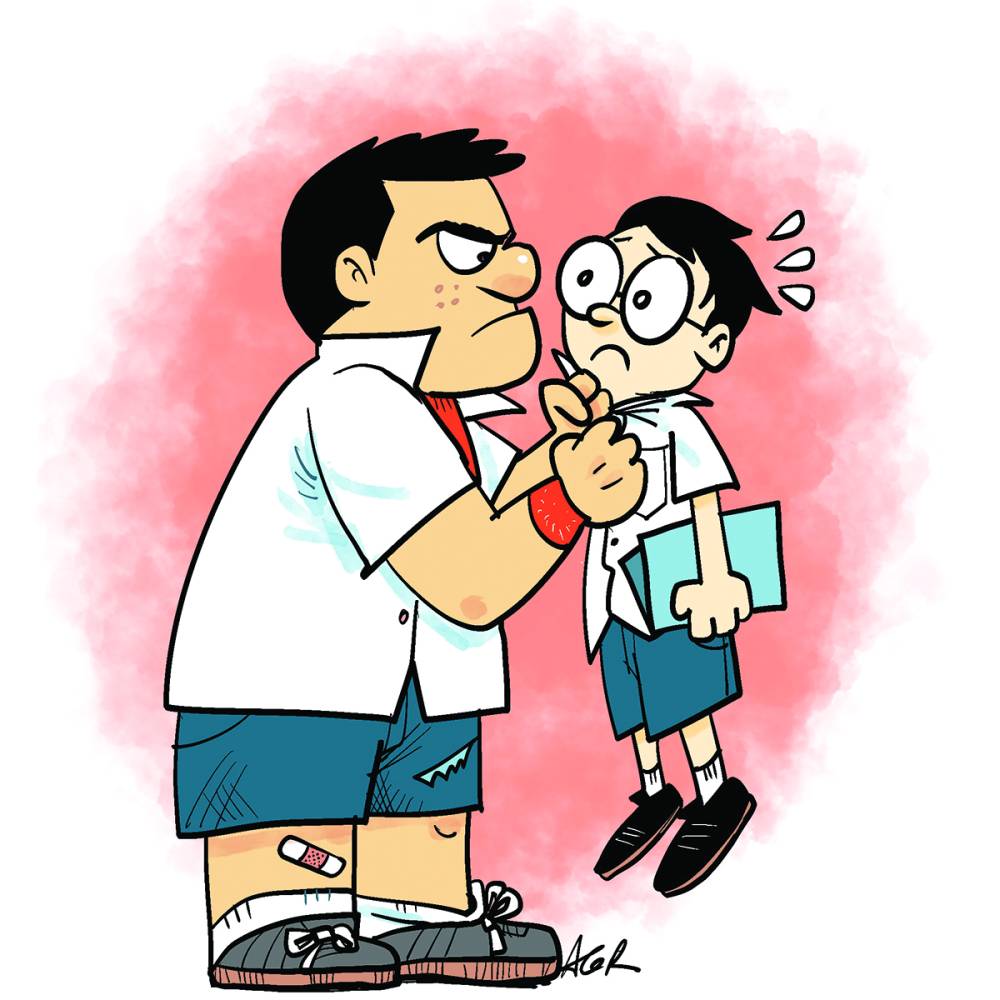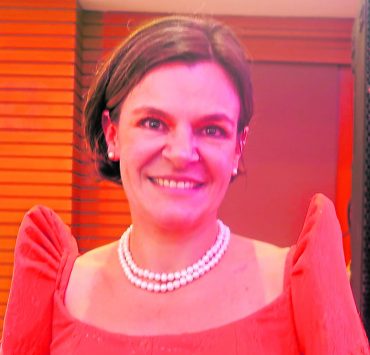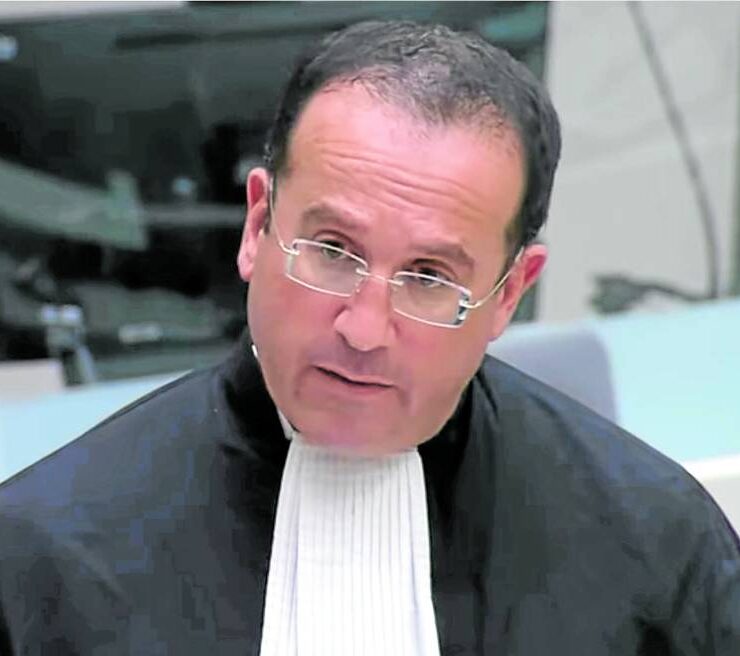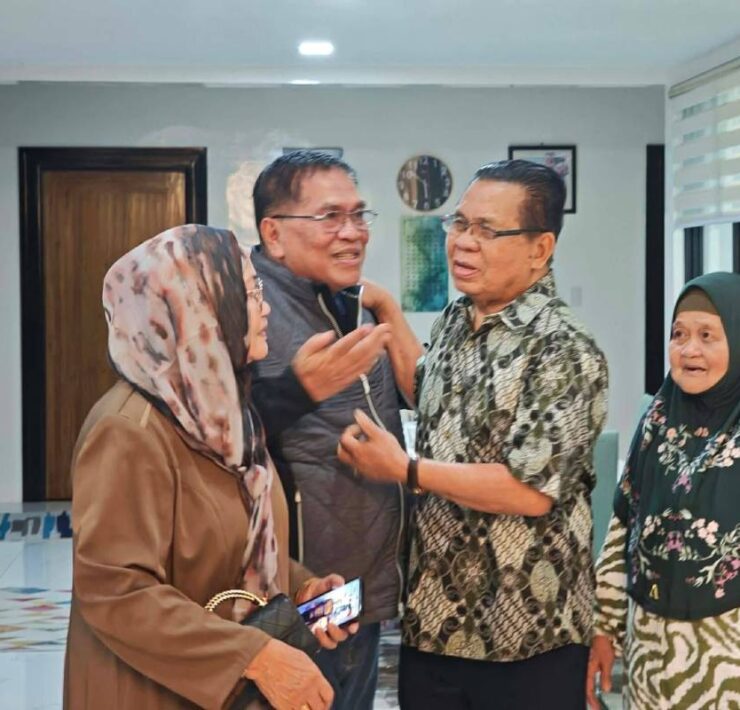A mother’s perspective on bullying and self-defense

My 13-year-old son Jack was at the school canteen buying food when his batchmate sprayed water on him. Jack told him to stop three times but the boy continued wetting him so he pushed him. The boy swatted Jack’s food away, making it spill onto the floor, so Jack pushed him back. The boy kicked him on the thigh and Jack kicked him back, and that’s when the boy punched him in the jaw. A guard came to break it up. Jack ran to the clinic, where the school doctor said he’d need an X-ray of his jaw to rule out a fracture.
The school physician issued an incident report. I notified the school authorities and the boy’s mother. Thankfully, the X-ray (the cost of which we shouldered) showed no further damage besides a bruise and weeklong pain.
In her investigation, the school prefect confirmed that while Jack’s version of the story was aligned with the witnesses’, the boy’s wasn’t. She said the boy showed little to no remorse and only apologized to her because of the sanction he’d be receiving. As of this writing, he has not apologized to Jack. He was not sorry about what he did, only that he got caught and will suffer the consequences: a C in conduct, a violation report (VR), disciplinary probation for two terms, counseling and a day’s suspension or community service. Pretty light for assault.
Meanwhile, Jack received a VR and was to get a B in conduct for hitting back because the school can’t encourage fighting. Jack issued three verbal warnings that were disrespected so he pushed his tormentor away. Given the circumstances, he acted as best as he could for his age. How can they expect kids to know how to act without equipping them?Self-preservation
The discipline officer mentioned that when she asked Jack what he should have done, he said he should have subdued his perpetrator instead. She said it was the first time she heard of that alternative. I explained the concept in jiujitsu terms and told her they should train kids to suppress bullies and diffuse tense situations instead of expecting them to know how to handle themselves by simply reporting the matter to the authorities after the damage has been done.
Defending oneself is instinctive. You shouldn’t beat self-preservation out of children or schools will churn out generations of victims. If schools don’t allow kids to protect themselves and penalize them for fighting back, they should institutionalize self-defense without physically injuring the perpetrator. The discipline officer liked the suggestion and relented to giving my son a B+ instead for his maturity. His varsity dreams and plans of running for a position in student government will also not be affected.
I understand that schools can’t allow violent retaliation, even in self-defense, but they should train kids on what to do aside from mere tattling after the fact or just accepting the bullying at the moment. The message this gives children is to let the hitting happen and to use their bodies to collect evidence or rely on the mercy of willing witnesses because if they defend themselves, their conduct grade will be affected.
Rules
I told my son I was okay with that VR as it was the price of his dignity. I’ve permitted my kids to fight back long ago if the other person hits first, but my son has never been comfortable with striking others. He’s always been a chill, playful dude; it’s just not his personality, and he doesn’t want it to affect his chances of running for school positions or spots in varsity.
I asked the prefect who decides on these rules anyway. It doesn’t specify what kids should do yet they are expected to do “the right thing” even as their prefrontal cortex isn’t fully formed yet. That’s a big task. I understand the need to exercise self-control to align with good values so as a learning institution they can’t condone violence. Still, they should drill regularly about what to do exactly when bullying does happen so the desired reactions will be automated. They have fire and earthquake drills but bullying occurs more frequently.
Last year, another boy took a photo of my son on the toilet and circulated it online. That seventh grader got the same de kahon sentence as the eighth grader who assaulted Jack because it was their first official offense. I was advised to file a formal complaint, which they insisted be notarized (again, I had to pay a notary public for this). Despite quoting the Safe Spaces Act the school purportedly upholds, their committee meted out the same first-offender sanction. They promised that the kid and my son wouldn’t share a restroom, corridor or classroom as they’d be on different floors.
The school didn’t keep their word as the boys continued to cross paths, their rooms were on the same floor and hecklers continued to harass him. The onus was on my son to have evidence of each heckler bullying him, then be tagged a tattletale if he did, so he didn’t bother.
At an event, the cyberbully even sat beside Jack like everything was normal. Jack told the offender he was uncomfortable being close to him and the boy said, “But that was so last year!” Jack gets retraumatized each time he sees this kid or whenever someone calls him “toilet boy.” Who pays for the therapy? Again, we do.
Why don’t I pull out my son from this school that tolerates assault and cyberbullying? Because I want him to toughen up, not run away. Shielding him will make him weak—he has to stand up for himself and fight his battles. There will be consequences, but he better learn now than later. People don’t always keep their promises and life isn’t fair. Bullies are everywhere. They should leave and be held accountable.
It breaks my heart but having experienced bullying myself, I know the only way out is through. My brother JC said, “Jack will get bigger and stronger. He will have better character than all these kids who peak in high school. He has us. He will be okay.”
To survive this big, bad world, he has to.
Author’s note: I have permission from my son to reveal his identity to help spread awareness of the need to roll out the drilling of antibullying techniques nationwide.





















